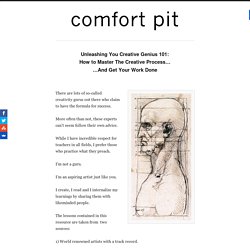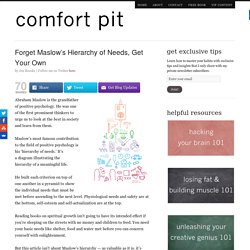

800 random questions. Well this be my first post, and since its silly o'clock and I can't sleep I decided to compile a list of 101 random questions that I have or would ask people as I get to know them.

To be honest 101 wasnt really enough but I finally got tired so i'll probably add to it later hehe 1) Whats your (full) name? 2) How old are you? 3) Whats your Birthday? 4) What starsign does that make it? Update: I reached my goal of 500 random questions with the help of Steph-a-knee and Claire :D update2: I'm now upto 600 and beyond with the added help of Lexy and the other Stephpossibly stay tuned for more lol. Effizient und auf den Punkt gebracht! Deine 9 größten Selbstmanagement-Probleme + Lösungen. Ich coache nun seit mittlerweile über zwei Jahre Klienten im Bereich Selbstmanagement.

Dabei begegnen mir immer die gleichen Probleme, oder sollte ich besser Ausreden dazu sagen? Die meisten dieser Probleme sind relativ einfach und mit geringem Aufwand lösbar. In diesem Artikel möchte ich dir daher nicht nur die Probleme vorstellen, sondern dir auch Lösungsvorschläge dazu anbieten. Ich bin mir sicher, dass das eine oder andere Problem auch auf dich zutrifft. Artikel als Podcast hören: Hier findest du alle weiteren Infos zum Podcast, sowie eine Übersicht aller Folgen!
Du ahnst gar nicht wie oft ich diese Ausrede, höre. Wenn bei deinem Auto die Tankuhr anzeigt, dass du schon im Reservebereich fährst, nimmst du dir dann die Zeit zu tanken, oder fährst einfach weiter weil dir die Zeit fehlt? Die Antwort ist meistens sehr klar und öffnet vielen die Augen. Motivation to Lose Weight: The Only 6 Scientific Methods Proven to Work. Have you ever tried any of the following to get motivation to lose weight: Visualised your ideal body?

Used a motivational wallpaper? Written out your goals? Beaten yourself up after binging? Tried improving your willpower? If you have, you’re not alone. Mainstream self-help dieting books endorse these types of behaviours. The problem is – there’s a growing body of scientific research showing that some of these methods are not just pointless but WORSEN our weight loss attempts. Below I’ve chosen the six most popular motivational techniques promoted by weight loss gurus to see if they work, and if not – what we can do instead. Unleashing You Creative Genius 101: The Creative Process. Unleashing You Creative Genius 101: How to Master The Creative Process… …And Get Your Work Done There are lots of so-called creativity gurus out there who claim to have the formula for success.

More often than not, these experts can’t seem follow their own advice. While I have incredible respect for teachers in all fields, I prefer those who practice what they preach. Motivation to Lose Weight: The Only 6 Scientific Methods Proven to Work. Forget Maslow's Hierarchy of Needs, Get Your Own. Abraham Maslow is the grandfather of positive psychology.

He was one of the first prominent thinkers to urge us to look at the best in society and learn from them. Maslow’s most famous contribution to the field of positive psychology is his ‘hierarchy of needs.’ It’s a diagram illustrating the hierarchy of a meaningful life. He built each criterion on top of one another in a pyramid to show the individual needs that must be met before ascending to the next level.
Physiological needs and safety are at the bottom, self-esteem and self-actualization are at the top. Reading books on spiritual growth isn’t going to have its intended effect if you’re sleeping on the streets with no money and children to feed. But this article isn’t about Maslow’s hierarchy — as valuable as it is, it’s limited. Four Personal Development Hierarchies Examined 1. Designing The Perfect Daily Routine: The Ultimate System. Harvard’s Positive Psychology Professor, Tal Ben-Shahar, believes happiness is the result of balancing meaning with pleasure.

But understanding what gives us meaning and what gives us pleasure is not as easy as it sounds. In this article, I will teach you how to track everything you do and then restructure your activities in the optimal way. You will learn the best way to end procrastination and develop the right habits such as meditation, exercise, and learning so that you can grow every day. You will learn how to work diligently on that which gives you meaning and reward yourself accordingly with pleasure. In this way, your habits will truly stick and fundamental changes in your day to day experience will be inevitable.
Work, for example, is thought of by most people as annoying and tedious, but psychologists Mihaly Csikszentmihalyi and Judith LeFevre show otherwise. This mismatch between reality and perception is now called the ‘work paradox’. aTime Logger 2 The Meaning Map 1. 2. 3. 4. Stop Beating Yourself Up for Not Getting Everything Done Every Day. One of the biggest challenges that we all face is the steadily increasing number of things that we have to do on a daily basis.

There is nothing new about this but many people struggle with a sense of daily frustration simply because they can't get everything done and in all likelihood they never will. I get the feeling that this sense of frustration is becoming a little more desperate every day. I'm suggesting a simple process that can dramatically change how you feel. At the end of the day, when you look at your to do list, and start the afternoon "I'm not good enough" session, beating yourself up because you didn't get everything done, try making a new list. On this list, jot down a few bullet points for each of the following 5 questions? 1. Now don't just give them a cursory glance, actually read through the list of things that you were able to cross off and give yourself a pat on the back for getting them done. 2. 3. 4. 5.